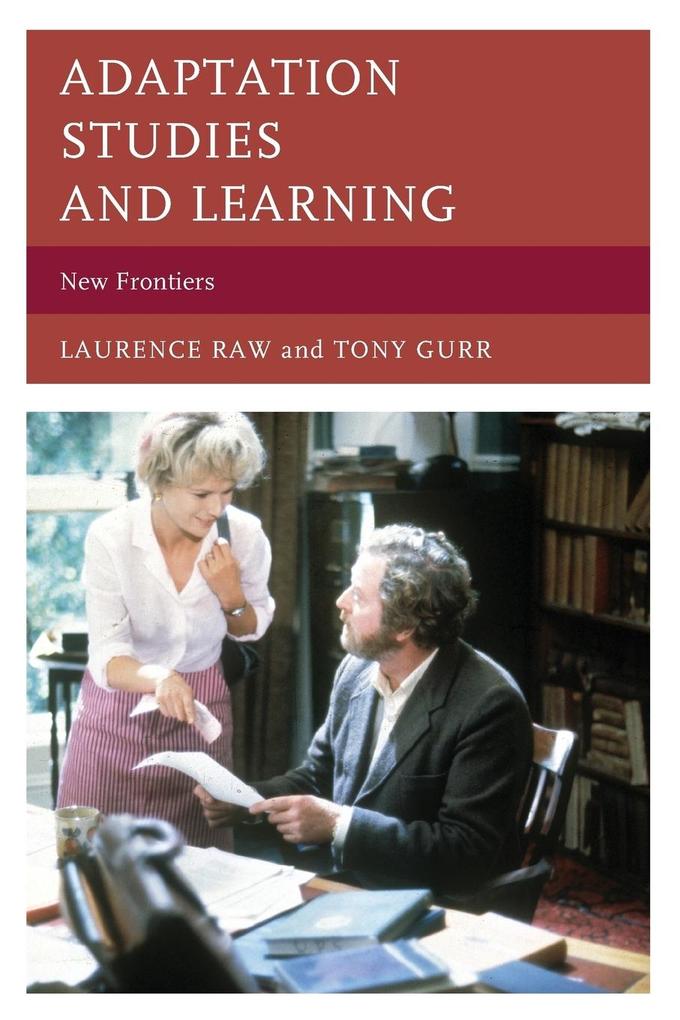
Zustellung: Mo, 16.06. - Do, 19.06.
Versand in 6 Tagen
VersandkostenfreiBestellen & in Filiale abholen:
In Adaptation Studies and Learning: New Frontiers, Laurence Raw and Tony Gurr seek to redefine the ways in which adaptation is taught and learned. Comprised of essays, reflections, and "learning conversations" about the ways in which this approach to adaptation might be implemented, this book focuses on issues of curriculum construction, the role of technology, and the importance of collaboration. By looking beyond the classroom, the authors consider how adaptation assumes equal importance in the world of the cinema as in the academy, demonstrating how adaptation studies involves real-world issues of prime importance-not only to film and theater professionals, but to all learners.
Inhaltsverzeichnis
Table of Contents
1. Learning Adaptation
2. Twenty-First Century Learning
3. Curricula Past, Present, and Future
4. Shakespeare in Education: Learning That Lasts
5. Reflective Practice
6. Why Bruner Matters
7. Actor, Image, Narrative: Anthony Drazan's Hurlyburly (1999)
8. Negotiating Adaptation and Translation
9. Transdisciplinarity, History, and Assessment
10. Understanding a Community of Purpose: Michael Winner's The Big Sleep (1978)
11. Star Wars: May the Force be with You (All)
12. Journey's End: Or is it?
13. Works Cited
1. Learning Adaptation
2. Twenty-First Century Learning
3. Curricula Past, Present, and Future
4. Shakespeare in Education: Learning That Lasts
5. Reflective Practice
6. Why Bruner Matters
7. Actor, Image, Narrative: Anthony Drazan's Hurlyburly (1999)
8. Negotiating Adaptation and Translation
9. Transdisciplinarity, History, and Assessment
10. Understanding a Community of Purpose: Michael Winner's The Big Sleep (1978)
11. Star Wars: May the Force be with You (All)
12. Journey's End: Or is it?
13. Works Cited
Produktdetails
Erscheinungsdatum
04. April 2013
Sprache
englisch
Seitenanzahl
194
Autor/Autorin
Laurence Raw, Tony Gurr
Verlag/Hersteller
Produktart
kartoniert
Gewicht
290 g
Größe (L/B/H)
229/152/11 mm
ISBN
9780810887930
Entdecken Sie mehr
Pressestimmen
"Adaptation studies," as the title suggests, refers to how adaptation informs and educates learners in a larger sense. Such borrowing, as Raw (author of other Scarecrow Press books) and Gurr (independent educational consultant) explain, exposes people to "a dialogic sphere of influence, appropriation, and citation." The authors further define "adaptation" as a principal educational vehicle for millennial culture involving skills in valuing, communicating, social interaction, and aesthetic engagement. A chapter on 21st-century learning, for example, cites a Jane Austen seminar utilizing blogs. This book functions as a "curriculum generator," inspiring skills in critical thinking, conceptualizing, and analysis. It rejects memory-based curricula and disparages literary study based on "what you knew rather than what you could do with what you knew." Regarding Shakespeare, the authors argue that adaptation becomes less textual and more a vehicle to change behavior and add "flexibility in perspective," resulting in collaboration, feedback, and reflection. Borrowing ideas from cognitive psychologist Jerome Bruner, they suggest that new transmedial adaptations arise from the selection and transformation of material, and the result is an axiomatic shift that privileges process over content. The authors affirm that "all texts borrow from a wellspring of textual annunciations with no static, explicit point of origin." Summing Up: Recommended. All levels of students and instructors. CHOICE
Bewertungen
0 Bewertungen
Es wurden noch keine Bewertungen abgegeben. Schreiben Sie die erste Bewertung zu "Adaptation Studies and Learning" und helfen Sie damit anderen bei der Kaufentscheidung.









